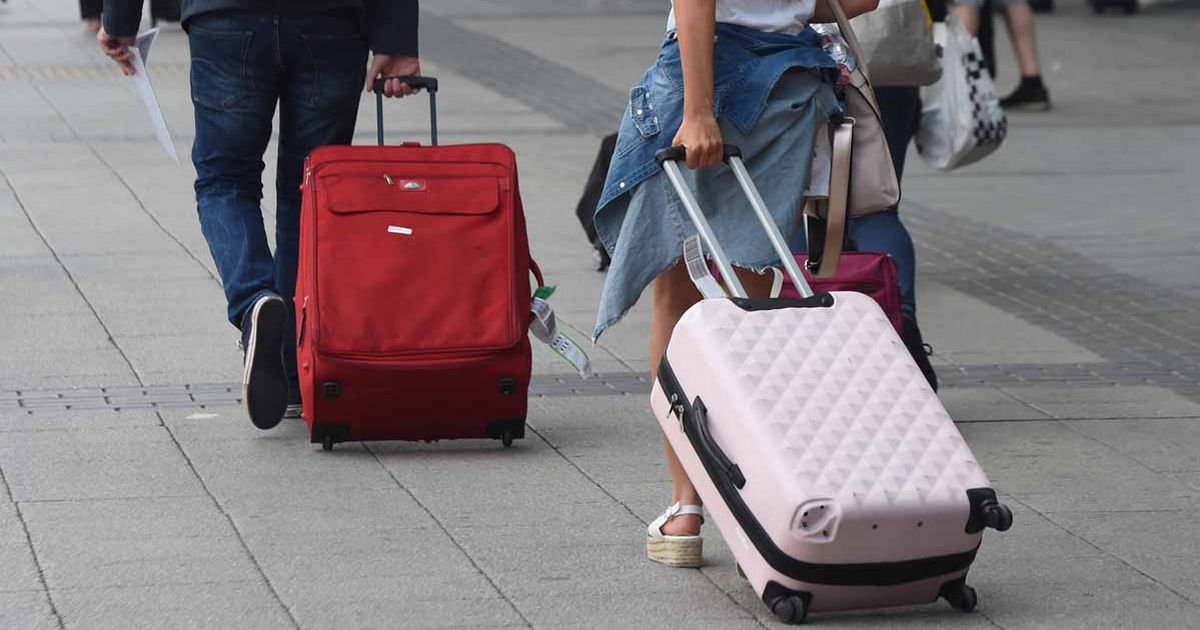UK holidaymakers have been warned of the penalties Travellers could be slapped with a £5,000 fine
Travellers could be slapped with a £5,000 fine
Thousands of families are heading off on holidays this month as the school six-week break is in full swing.
But a warning has been issued to those travelling to certain places over items which can be purchased from duty free.
Transporting five items through customs could land holidaymakers with a £5,000 fine.
It comes after the government introduced stringent new regulations earlier this year to address an outbreak of a severe disease across Europe.
This means that anyone returning from affected areas such as Spain, France, Italy and Greece must ensure they don’t have any banned items in their baggage, BristolLive reports.
The current restrictions mean that anyone discovered carrying items including sandwiches, cheese, cured meats, raw meats or milk into the country will be detained at the border.
It remains prohibited for travellers from all EU nations entering Great Britain to bring items such as sandwiches, cheese, cured meats, raw meats or milk into the country.
This applies irrespective of whether the products are wrapped or packaged, or whether they were purchased at duty-free outlets.
Authorities stated that those discovered with these products will be required to either hand them over at the border or have them confiscated and destroyed.
And in serious cases, those found with these items run the risk of incurring fines of up to £5,000 in England.
The Government has implemented measures to halt the transmission of foot and mouth disease (FMD) following an increasing number of cases throughout Europe.
Travellers are prohibited from bringing cattle, sheep, goat, and pig meat, as well as dairy products, from EU countries into Great Britain for personal use, to protect the health of British livestock, the security of farmers, and the UK’s food security.
Foot and Mouth Disease (FMD) poses no risk to humans, but it is a highly contagious viral disease that affects cattle, sheep, pigs and other cloven-hoofed animals such as wild boar, deer, llamas and alpacas.
The outbreak on the continent presents a significant risk to farm businesses and livestock in the UK, despite there being no current cases.
The disease can cause significant economic losses due to production shortfalls in the affected animals, as well as loss of access to foreign markets for animals, meat and dairy. In response to confirmed outbreaks of FMD in Germany, Hungary, Slovakia and Austria earlier this year, the Government has already banned personal imports of cattle, sheep and other ruminants and pig meat as well as dairy products from these countries.
The new restrictions apply only to travellers arriving in Great Britain, and will not be imposed on personal imports arriving from Northern Ireland, Jersey, Guernsey, or the Isle of Man.
Farming Minister, Daniel Zeichner, previously said: “This government will do whatever it takes to protect British farmers from foot and mouth.
“That is why we are further strengthening protections by introducing restrictions on personal meat and dairy imports to prevent the spread of the disease and protect Britain’s food security.”
UK Deputy Chief Veterinary Officer for international and trade affairs, Dr Jorge Martin-Almagro, added: “Following the detection of foot and mouth disease in EU countries resulting in a rising risk of introduction into Great Britain, we have extended restrictions on the personal imports of food products that pose a risk in FMD transmission.
“Robust contingency plans are already in place to manage the risk of this disease to protect farmers and Britain’s food security. This biosecurity measure combined with all others we have implemented are critical to limit the risk of FMD incursion.
“I would urge livestock keepers to continue exercising the utmost vigilance for signs of disease, ensure scrupulous biosecurity is maintained and to report any suspicion of disease immediately to the Animal and Plant Health Agency.”
Small quantities of baby formula, medicinal foods and specific composite items such as chocolate, sweets, bread, cakes, biscuits and pasta are still permitted.
